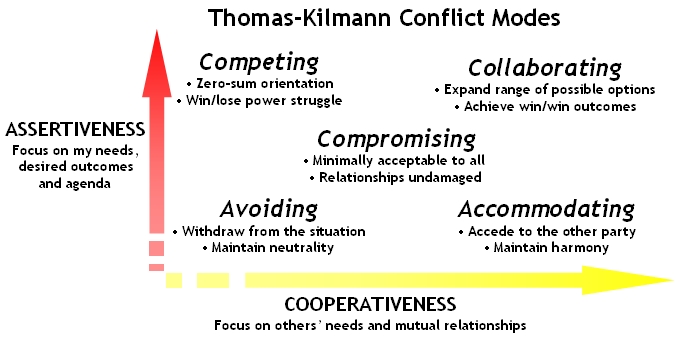 Summer is winding down and parents everywhere are looking at the upcoming school year...some with joy and excitement, others with fear and trepidation. You see, some parents have kids that do well in school, get along with others, lead themselves and their peers well. But some parents have kids that are picked on, harassed or bullied by other kids. And some parents have the bullies. To help you prepare your kids for back to school, I have put together some tips from John Maxwell's YouthMAX Leadership Program that can help you and your child deal with the new school year in a positive, empowering way. Leadership Is Influence Everything rises and falls on leadership, and leadership is all about influence. Kids are never too young to be taught these principles. By teaching our kids how to lead themselves well, we can give them the coping skills to handle the situations that they face every day. In order to do that, we must first teach them integrity. And you guessed it - the way to teach/influence/lead them is by modeling it ourselves! Setting up a strong moral code for them gives kids the foundational beliefs that will guide them through their entire lives. Very simply, teach them what you believe and teach them by your example. Kids watch their parents and learn by imitation, rather than by memorization. It's the old "do as I say, not as I do" thing that we need to be careful of here. Hopefully, they will begin positively influencing their peers as well by acting with integrity. Choices Determine Character Helping kids build character is another important part of teaching them about leadership. "Character" is the accumulation of qualities that make us dependable and trustworthy. Things like honesty and integrity are the keys to good character. It is that concept of doing the right thing even when no one is watching. They will see that, by being honest, people will learn to trust them - Mom and Dad included. Another good character behavior to model is keeping your word. When they see you follow through with plans or promises, they will know that it is an expected behavior. Teach them to do what they say they will do. Character, and life in general, is a product of the choices we make. This applies to adults and children. Teaching kids to listen to their inner voice can be challenging if you're trying to do it out of context. Look for "teachable moments" with your kids and it can be a lot simpler. When you witness someone else making a poor choice, you can use that opportunity to discuss what they would do in the same situation and talk about possible outcomes. Maybe it was your not-so-great choice that you can discuss with them - a traffic violation, for example. Or maybe you were the bully in school and you can teach them what not to do. I tell kids the story of going back and apologizing to the kids I made fun of in junior high because as an adult I finally realized the impact of my stupid behavior, and even though it was years later, I wanted to make things right. We have to teach our kids to accept responsibility for their own actions, and teach them the self-discipline to make good choices. Everyone makes mistakes, but how we recover that mistake is important - owning up and apologizing when we have made a bad choice is a sign of good character. Lift Up, Stand Up, Pick Up We frequently hear news reports about kids being bullied. Some leading to terrible tragedies, like suicide and severe beatings or even death. There are three really simple principles to teach your kids that can help them deal with various interpersonal situations - and teach them how NOT to be the bully. First of all, kids need to use their words to Lift Up others. Words are very powerful and can emotionally tear another person down. They can also build a person up! Encourage them to use them to Lift Up others and celebrate their good attributes and support them! Offensive language, put downs - or insults, and threats of pay back are all typical tactics used by bullies. Remind them how bad it feels when they are spoken to in this way and help them understand other's feel just as bad when they do it to them. Empower your kids with the knowledge that leadership is influence - and that they have influence - and you empower your child to Stand Up to bullies on behalf of themselves and others. Statistics show that, in most cases, if someone says something in the first five seconds, the bullying will stop. If kids are confident in their leadership skills, they will be confident enough to help someone who is being bullied. By teaching them all of these skills and empowering them to believe in their own leadership abilities, you can help your son or daughter Pick Up someone who is being bullied. Here are some ideas to implement at home to help kids develop values and make decisions based on those values:
P.S. Bullies grow up and go into the workforce! All of these tips apply to us as well. We can show strong character, we can lead ourselves and our teams to do the right thing - Lift Up, Stand Up and Pick Up others at work, too! I'd love to know how you're preparing your kids to be little leaders this school year. Do you talk with them about character, bullying and leadership? If so, share with us your recommendations in the comments!
1 Comment
 Leadership is defined as “the action of leading a group of people or an organization”. However, I believe that good leadership means leading ourselves first! For women, the leadership roles that we take on – by choice, by chance, or by necessity – can be both rewarding and overwhelming. The rewards are pretty obvious; successful business ventures, happy relationships, growing families and close friends. These things can all be overwhelming, too. Let’s face it, they all involve real work on some level and they all need your consistent involvement. As we move through our day-to-day responsibilities we often lose ourselves in the needs of those we lead and serve. Think about it: when was the last time you postponed something that you needed or wanted and instead invested your time and energy in your family or business? Did you skip your workout to schedule a last-minute meeting? Stay up late so you could catch up on emails? Cancel plans to meet a deadline? Put off a hair appointment for a kid's soccer game? Hey, it happens, we all do it. But when it starts to happen more often than not, you need to look at what you’re really sacrificing. Oxygen Mask on YOU First As women, we face a unique set of challenges in leadership, both in the business world and at home. We are expected to find a work/life balance that meets the needs of our clients and families and still allows us to have a life away from the needs of others. You remember that “life", right? Dinner with friends, that hobby you love, time to pamper yourself…whatever it is the rejuvenates you? If you forgot, it’s probably because that is the first thing to go when things get busy or stressful at work or at home. And as leaders, it can be difficult to find a way to manage stress that doesn’t create yet another time-management conflict. What if I told you that you can, and should, carve out the time you need to keep yourself mentally and physically well? In fact, your business and your personal life can benefit from your well-being. The reason they tell you on the airplane to put the oxygen mask on yourself first applies in our day to day lives as well, if we can't lead ourselves well, we are not going to be able to lead others well. Communication is Key Another huge factor in good leadership success is effective communication. Your verbal communication skills are obviously very important. The success of your life hinges on your ability to communicate your ideas, plans, and goals in an effective manner. However, communication is more than the conveyance of words. We communicate verbally and non-verbally and the better we are at creating shared meaning with those we lead, the more success we can have. Learning how to effectively communicate with colleagues, employees, family members and friends can help you simplify your life by cutting down on misunderstandings. It can also help you increase efficiency at work and is a very important part of successful conflict resolution. Help is Here! Finding that balance between the things that need to be done and the things you would like to do can be difficult - this is where I can help you. My Leadership Retreat for Women is a unique opportunity for you to learn how to lead yourself well – body, mind and business. Discover why it is so important to take care of yourself, learn new leadership skills and how your well-being can positively impact your leadership experience - and have FUN! Meet like-minded women and learn, together, new skills to improve your life and business in a relaxing environment. Forget about boring conference rooms and Power Point presentations. As we work through this two-part weekend, we will be on the beach, poolside, on a catamaran and at the spa. The first part of the retreat will focus on evaluating how you take care of yourself and implementing plans for growth and development. During the second half of the retreat, we will work on improving our communication, conflict resolution and interpersonal skills as leaders. Click here for more information or to complete the application for the retreat. Space is extremely limited; don’t miss your chance to take part in this unique approach to self-development. Guys, don't worry, there is something for you coming up soon as well, so stay tune! In the meantime, pass this along to a women in your life who needs to reconnect with herself.  You thought I meant cancer? Nope, not a doctor and not qualified to tell you much on that, but I do know a thing about another unpleasant big "C" - CONFLICT. And conflict can sometimes feel like a cancer if we let it. But conflict in and of itself isn't a bad thing. Just like cancer is our own cells that mutate, now there are things we can do that contribute to it, but it can also just happen. Same thing with conflict. A conflict is simply two interdependent parties having different goals or needs. Sounds pretty benign, right? It is. And it's also very normal! And inevitable! If we all wanted and needed the same things all the time, this would be quite a boring world with a LOT of boring similar people with boring lives and little innovation or excitement. “Conflict is an expressed struggle between at least two interdependent parties who perceive incompatible goals, scare resources, and interference from others in achieving their goals.” The reason a conflict can begin to feel like a cancer eating at us or damaging relationships over time is because of the way we choose to handle it! Most of us have a dominant response to conflict situations that we tend to automatically use in most conflicts without putting much choice or thought into our reaction. This dominant response is not going to be the best choice in all situations. But with a little awareness, and a few tips and tools we can become more aware of what our options are and therefore consciously choose a better way to navigate a conflict. This is a subject that can and has been studied and written about at length and I won't claim to give you the cure all in just a few paragraphs. I will however share a few things for you to consider to aid you in changing your mindset about conflict and therefore how you engage in future conflicts. One of the first things I want to point out that is evident in our definition above, is that there are two parties involved...in other words both have some contribution. In every conflict each party has some ownership. Even if you know you are right, maybe the way you make your point is contributing to the conflict, maybe even though your intentions were good, they were mistaken. However big or small, each party has contributed. Being honest with yourself and owning your contribution is a great first step in resolving issues. On the path to self awareness and choosing how to respond to various conflict situations, we first need to know what our autopilot response tends to be in these situations. A good tool for figuring that out is the Thomas-Killman Conflict Mode Instrument. It will tell you which of the five conflict styles you use most frequently. The graphic below shows the five styles and provides explanations for each and when it is best to use which style. Once we are aware of our own usual style and become familiar with our other options, we can then move toward a more deliberate and constructive manner of handling conflicts. Let me give some examples that may help explain this graphic a little better... In every conflict there are two parts, the content and the relationship. So another way we can interpret this scale is by thinking of "cooperativeness" as the importance of the relationship, and "assertiveness" as the content/issue at hand. We need to evaluate both factors in each situation and use our conclusions as the information we need to choose which style. For example, if I am experiencing a difference of opinion about where to go to dinner with my loved one and he really has his heart set on Italian but I suggested Chinese, depending on how important it is to me that I get to eat Chinese food that night and how important maintaining a positive relationship is to me, I have a few choices...I could be competing and "win" with Chinese because it is super important to me. Or I could be accommodating because I like both and I can see he really wants Italian tonight and I want to maintain the relationship. So if I care more about us spending time together that night than what we actually eat, accommodating is my best choice. However, if I choose competing just because I want to "win" not because the issue was that important, that can be an indicator of something more going on. So part of this process is evaluating why we want what we want. What is driving my position?
Now that was a pretty simple example to illustrate that conflicts can be pretty complex, even the simple ones... The point of this is to get you thinking about your options. It is not that one style is better always than others, although collaboration does have an edge because both parties are getting needs met, there are certainly situations where each style is appropriate. Games wouldn't be as fun without competition! And what if a person threatens to kidnap your child, I would hope you would choose competing because the issue is too important! If a person is running after me to cause me harm, you better bet I'm avoiding! Like some cancers, the outcome of a conflict can depend on when you address it and how you treat it. Being proactive, aware and knowing your options can help! Sorry it's a long one! Continue the discussion in the comments if you will! What is your dominant response? How's that working out for you? How can I help? |
Anna OlsonThis is where I share resources, tips and nerd out on communication and leadership. Archives
March 2016
People I FollowJon Acuff Categories
All
|


 RSS Feed
RSS Feed
